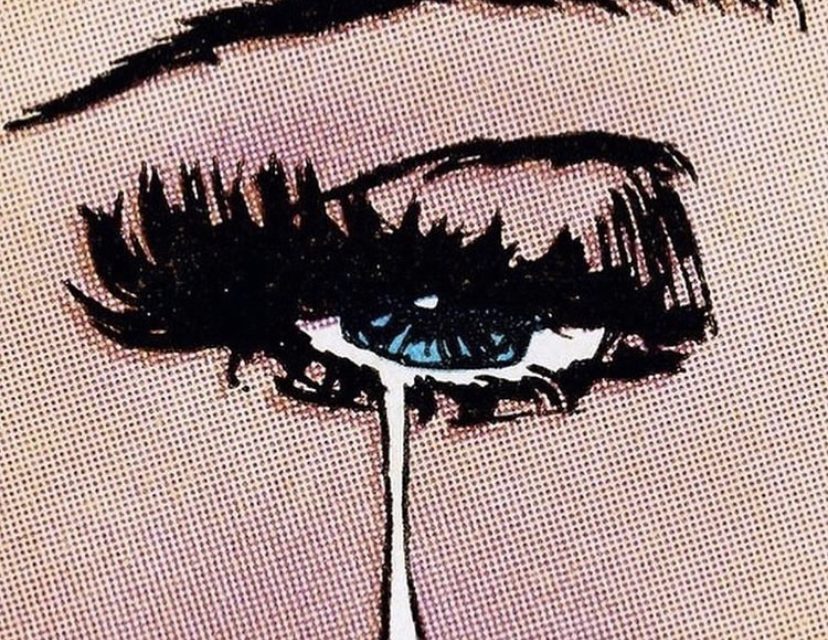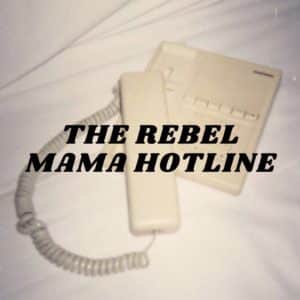Long before the world as we knew it came to an abrupt halt, we hosted an event called Love + Loss with our friends from Crying Out Loud and ee-mah to blow the lid off the topic of grief and to honour the people who have experienced the unimaginable death of a child, partner, parent or friend. The goal of the event was to increase our collective understanding of grief – to uncover what it actually looks like and figure out how we can better help friends and loved ones who are affected.
What we learned is that everyone’s circumstance is completely unique, as is each person’s grieving process, but there are a few characteristics of grief that seem to hold true no matter who you are or whom you’ve lost. Understanding these consistencies can make us better friends / partners / support people, so we should make it our business to let the following soak in and soak in deep.
A few general notes on grief to begin:
- Grief is a means by which we remember the ones we love – the point is not to eventually “get over it”
- Timeline doesn’t change anything and nothing will ever make the loss of a loved one “O.K.”
- Grief is ongoing and may never get better – as someone at the event poignantly phrased it: “grief dies when your love dies”
- You don’t get over grief; you just move forward with it
- It’s O.K. to have happy moments during times of grief
- Grief is not linear; it comes in ebbs and flows
- Society needs to ditch the idea that if you’re showing emotion, you’re not being “strong”
The purpose of this post is to offer you insight into how to be there for someone who has experienced intense loss. The advice herein was gathered directly from the mouths of the brave women who came together with us to share their stories and experiences.
If you want to offer a grieving person support, keep in mind that:
- Vanishing is the absolute worst thing you can do (even if it feels as though they’re pushing you away)
- The first year will be the most difficult for them – they will gain perspective as time goes on; cut your grieving friends all of the slack
- Your empathy may be rooted in fear that the same fate might befall you (which won’t make them feel any better)
- To a grieving person, their loss is the worst loss; equivalencies will fall short every single time so don’t bother bringing them up
- Don’t stop reaching out / coming by after the busy period ends (i.e. after a month or two has passed)
- Check on grieving friends during holidays – Mothers Day, Christmas etc. can be especially hard
It’s extremely difficult to articulate what grief feels like. It is an extremely complicated emotion that (as you now know) is anything but linear, but from what we were able to gather, it can feel like any combination of:
- a duality of emotions (feeling joy one minute and despair the next)
- a sense of guilt (for not being able to be a “good enough” friend / partner / daughter)
- a series of triggers / reminders of the magnitude of loss (milestones are particularly difficult)
- an overwhelming sense of loneliness
- a deep sense of frustration surrounding not getting the kind of support needed (this, however, can really only be remedied by the grieving person upon realizing that they have to learn the art of asking for what they need and really spell that out for people)
- a confounding feeling that you need to comfort others instead of taking care of yourself
- a deeply unsettling sense that the world as you know has changed forever, followed by anger and frustration that you have lost ‘your normal’.
- physically and emotionally draining. Grief saps all the gas that is in your tank, you have to do the rest of your life on just fumes.
Now for the most important piece of the puzzle: How can you help?
Well, the best thing you can do is give a grieving person permission to feel everything they’re feeling – happy, sad, furious, frustrated, joyous – it’s all valid and it’s all healthy and they’re doing the best they can under extremely trying circumstances. Simply validating their feelings and experiences can go a really long way. Also, remind them as often as necessary to CUT THEMSELVES SOME GODDAMN SLACK. Many grieving people (especially women) still hold themselves to impossible standards and are super hard on themselves for not acting or feeling a certain way. Remind them to be gentle with themselves and tell them that you’ll be there for them in whatever way they need. If you don’t know what to say, go with “This sucks and I don’t know what to say” or simply check in with: “What can I do to be helpful to you today?”
Ask questions, and listen to hear (not to reply). Ditch the blanket statements and inspirational quotes – when in doubt, a hug and some silence can go a really long way.
Some things you should avoid saying to a grieving person:
“You are just so strong” (they’re likely to take this as “you’re not allowed to be weak”)
“This happened for a reason” (doesn’t make anyone feel better)
“They’re in a better place” (simply not true – unless the person you’re speaking to is hyper religious)

Ok so what about the kids? How can we support kids who themselves are grieving? To answer these questions, we relied heavily on our friends (and event co-hosts) from Crying Out Loud – 4 women who were brought together by the loss of immediate family members. Three of them have been tasked with the responsibility of supporting their children through the grief of losing their dads and they had some really amazing insight to provide for anyone who may be in the same boat.
Here are some things to keep in mind about grief & children:
- Kids will have a lot of questions as they try to process what death means
- Be as honest as you can
- You don’t have to have all the answers
- Allow yourself to wonder and imagine with your kids
- Kids are more grief literate than you think
- For kids, talking about death is not morbid
- There’s no “correct” time to discuss loss – right away, or wait, whatever feels right for you
- It will be a constantly evolving conversation – kids experience their grief differently at different ages / stages of their lives
- If you talk about it openly, they will grow up to not be silent when facing grief
- Use simple and straightforward language. When you say: “We lost Grandma.” Their response may be, “Where is she?” When you say: “We buried Dad’s body.” They may reply with, “Where did we bury his head?” Remember that euphemisms or metaphors are confusing, especially for young kids.
Now, for those of you beautiful souls out there who are currently in the throes of grief yourself, the amazing women at our Love and Loss also had some words of wisdom for you, namely:
- Learn to allow yourself to step away from people (online and offline) who make you feel shitty – you are not being a bad friend; you are coping. If reconciliation is in the cards – great. If not – so be it.
- Dark Humour can be a surprisingly great coping tool.
- Learn to ask for exactly what you need – Spell it out for people if you must.
- Be clear about your boundaries.
- Be gentle on yourself. Grieving is hard and messy work.
- When a wave of grief comes, let it. Let it wash over you, let yourself feel all the feelings, and then it will pass. The waves will come and go, but they will recede more easily if you let them come.
Death is a part of life, friends – whether we like it or not, at some point in our lives, we will all be touched by it. It would serve us all well to become more grief literate. It will make us better friends; it will make us better people; and it will help us to be able to better weather our own storms when they inevitably blow in.









From Our Comments